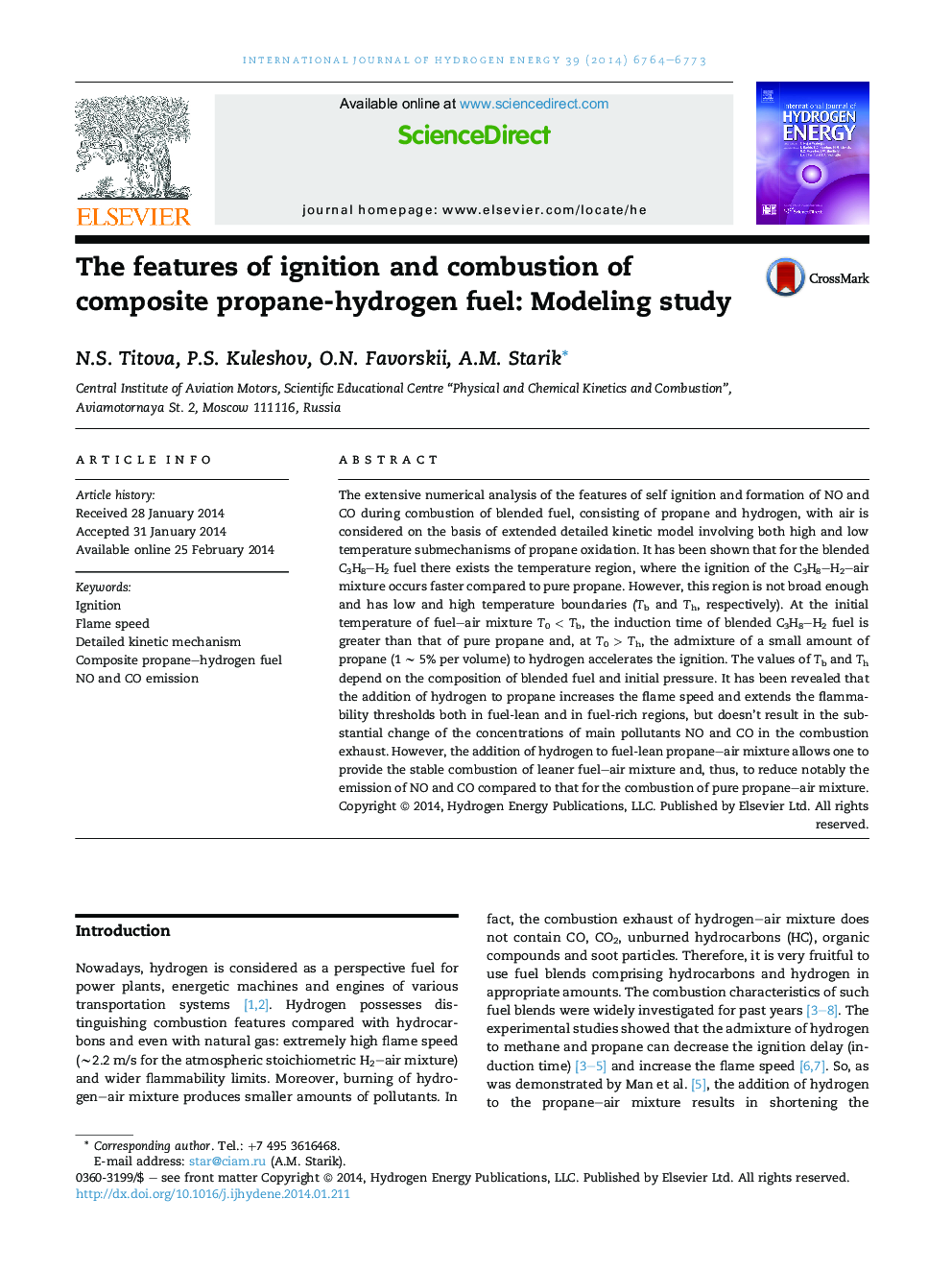| Article ID | Journal | Published Year | Pages | File Type |
|---|---|---|---|---|
| 1272869 | International Journal of Hydrogen Energy | 2014 | 10 Pages |
•Comprehensive study of ignition and combustion of propane-hydrogen fuel is conducted.•At low temperature (T0 < Tb), the C3H8–H2–air mixture ignites slower than C3H8–air one.•At temperature range Tb < T0 < Th, the H2 addition to C3H8 decreases the ignition delay.•The H2 addition to C3H8 increases the flame speed and extends flammability thresholds.•H2 addition doesn't notably change NO and CO concentrations in combustion exhaust.
The extensive numerical analysis of the features of self ignition and formation of NO and CO during combustion of blended fuel, consisting of propane and hydrogen, with air is considered on the basis of extended detailed kinetic model involving both high and low temperature submechanisms of propane oxidation. It has been shown that for the blended C3H8–H2 fuel there exists the temperature region, where the ignition of the C3H8–H2–air mixture occurs faster compared to pure propane. However, this region is not broad enough and has low and high temperature boundaries (Tb and Th, respectively). At the initial temperature of fuel–air mixture T0 < Tb, the induction time of blended C3H8–H2 fuel is greater than that of pure propane and, at T0 > Th, the admixture of a small amount of propane (1 ∼ 5% per volume) to hydrogen accelerates the ignition. The values of Tb and Th depend on the composition of blended fuel and initial pressure. It has been revealed that the addition of hydrogen to propane increases the flame speed and extends the flammability thresholds both in fuel-lean and in fuel-rich regions, but doesn't result in the substantial change of the concentrations of main pollutants NO and CO in the combustion exhaust. However, the addition of hydrogen to fuel-lean propane–air mixture allows one to provide the stable combustion of leaner fuel–air mixture and, thus, to reduce notably the emission of NO and CO compared to that for the combustion of pure propane–air mixture.
